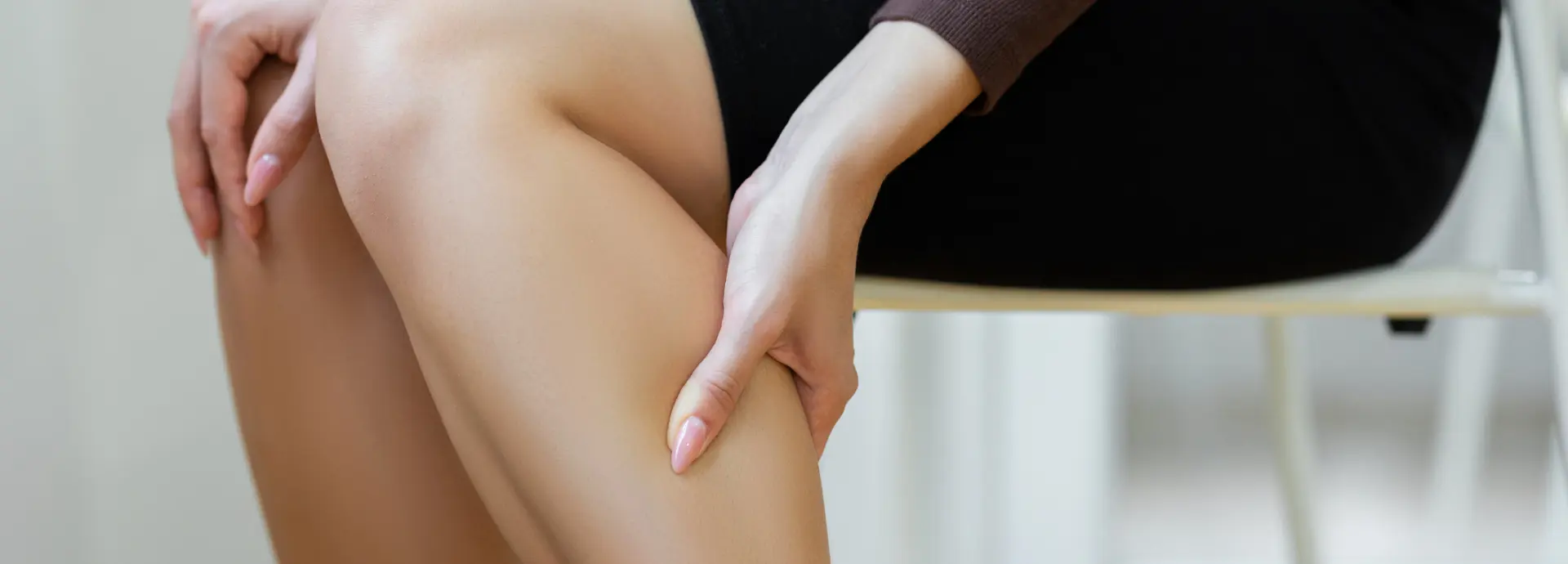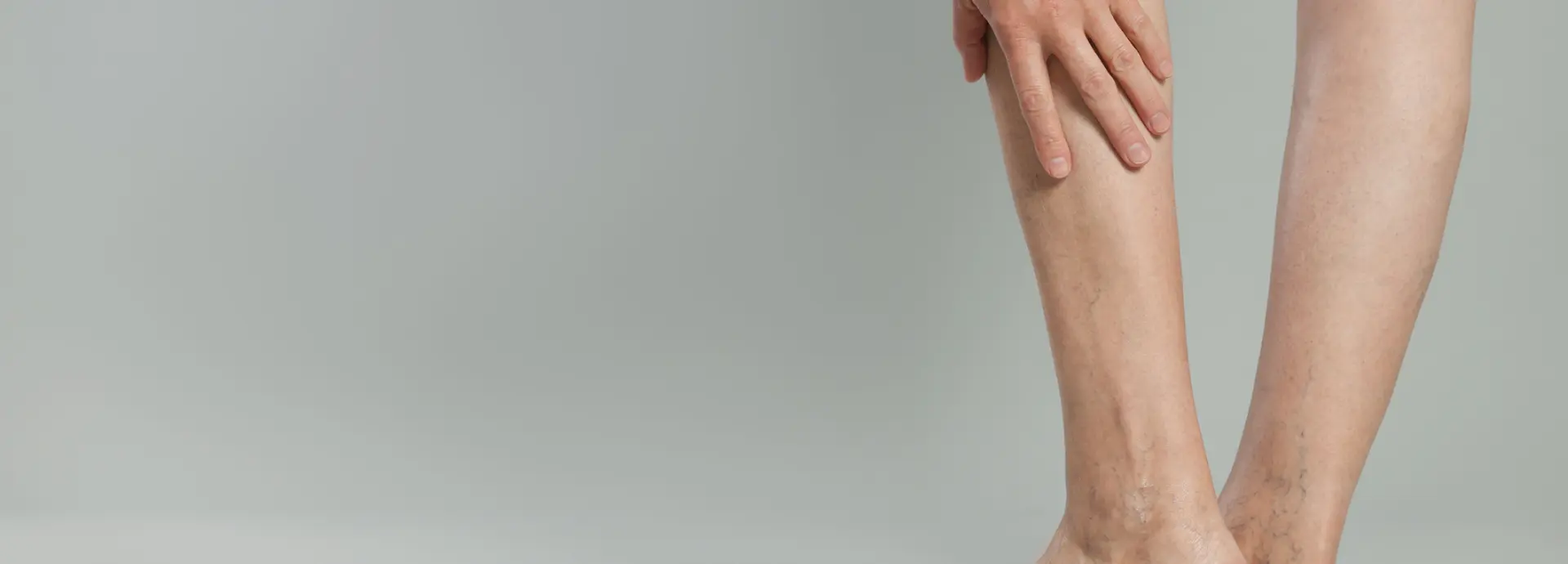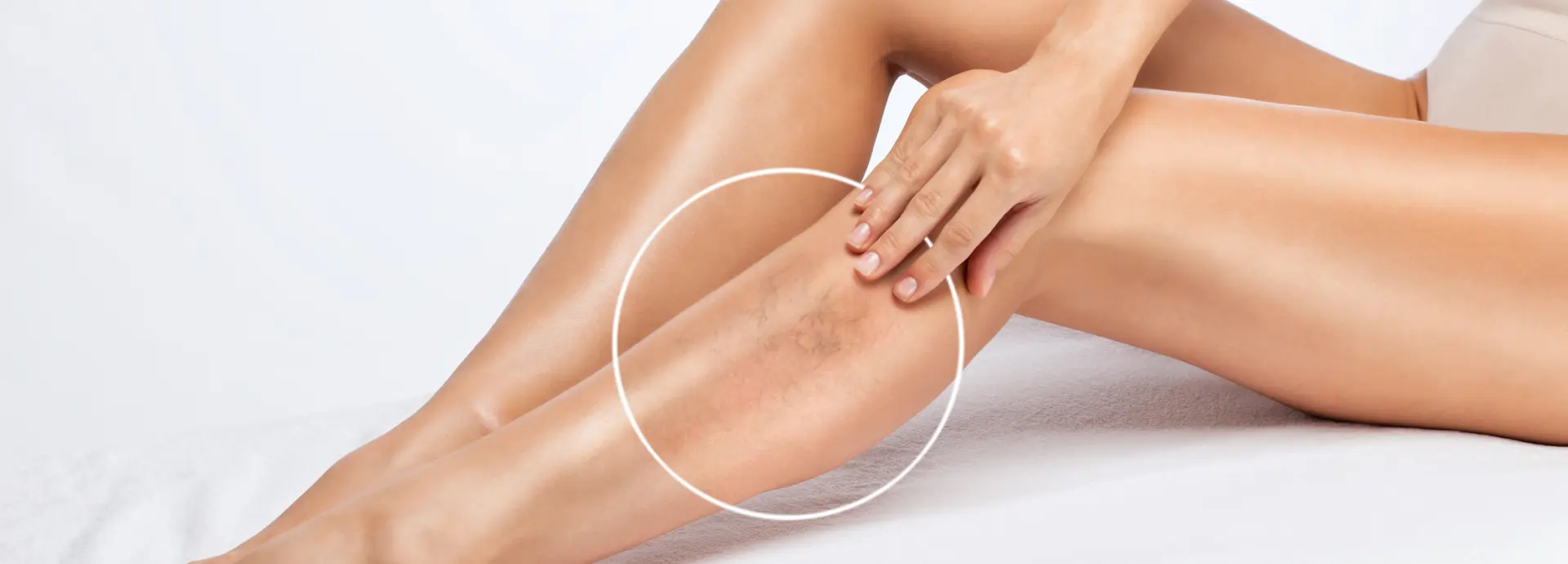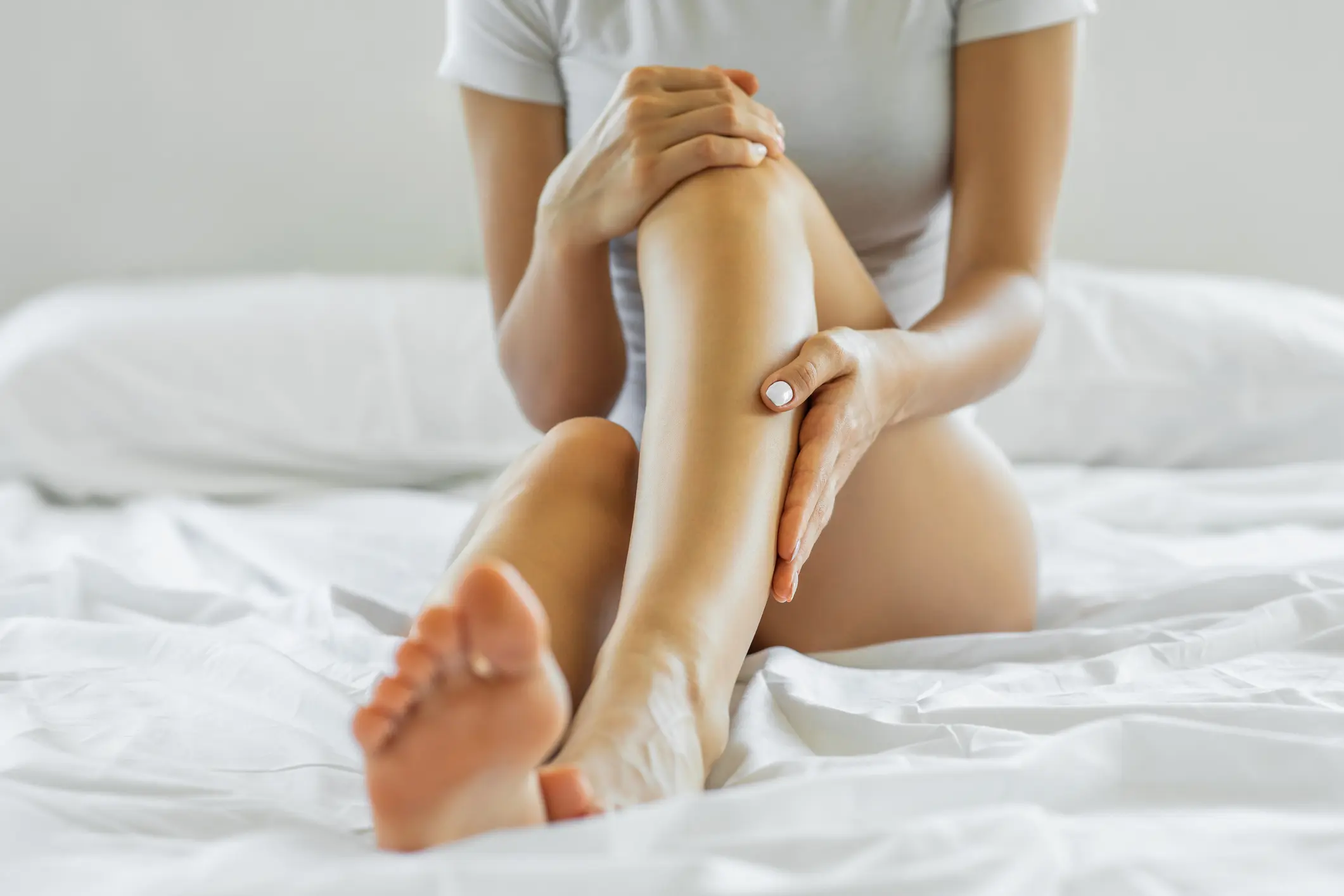Sick of spider veins stealing the spotlight on your legs?
Varicose veins cramping your style?
Don’t resign yourself to unsightly bulges and pain. The vein specialists at Allure Medical are here to help.
Introducing Allure Medical’s Vein Specialist Care, where medical expertise meets compassionate care.
We offer advanced treatments to banish spider veins and varicose veins for good. Our non-surgical, in-office procedures gently restore vein health, relieve discomfort, and reveal healthy, confident legs.
And we don’t offer quick fixes that just mask the problem. We’re all about accurate diagnosis and customized treatment that gets to the root cause of your venous concerns. So you can have:
- Naturally healthy-looking legs free of bulging varicose veins
- Relief from painful, uncomfortable vein symptoms
- Renewed confidence to bare your legs again
- Advanced minimally invasive procedures for long-lasting results
- Compassionate guidance on preventive care and lifestyle changes
Want to show off healthy, confident legs again? Our individualized vein treatments can make it happen. Learn more about the customized options we offer.
What is a Vein Specialist?
A vein specialist (also called phlebologists or vascular surgeons) is a physician who specializes in treating venous disorders and conditions related to the circulatory system. They are experts in diagnosing and treating vein problems through minimally invasive methods.
Vein specialists complete advanced training in phlebology, the field devoted to vein health. They can perform complex vein procedures that general doctors don’t typically offer. Seeing a qualified vein specialist provides you with treatment options you may not get elsewhere.
What Conditions Do Vein Specialists Treat?
Vein specialists diagnose and treat all types of vein problems. Some of the most common conditions they see include:
Varicose Veins
Varicose veins are enlarged, twisted veins that bulge under the skin. They often appear as ropey blue/purple veins on the legs. Varicose veins develop due to weak or damaged valves that allow blood to flow backward and pool in the veins.
In addition to cosmetic concerns, varicose veins can cause symptoms like aching, throbbing, muscle cramping, and heaviness or fatigue in the legs. Varicose veins also increase the risk for serious problems like phlebitis, leg ulcers, and deep vein thrombosis.
Spider Veins
Spider veins are tiny purple, red or blue veins that branch out and look like a spider web. While mostly a cosmetic issue, spider veins can signal venous insufficiency. Advanced cases can cause mild leg discomfort.
Reticular Veins
Reticular veins appear as bluish-green veins just under the surface of the skin. They connect the spider veins to the deeper varicose veins. Reticular veins may be symptomatic and can worsen into varicose veins if not treated.
Telangiectasias
Telangiectasias are the tiniest spider veins, less than 1 mm wide. They appear as fine red lines or webs on the legs and face. Telangiectasias do not typically cause symptoms or lead to complications.
Venous Insufficiency
Chronic venous insufficiency is when your leg veins have trouble sending blood back to the heart. It causes swelling, aching, skin discoloration and ulcers. Vein specialists can treat the underlying cause of venous insufficiency.
Deep Vein Thrombosis
Deep vein thrombosis (DVT) is a blood clot that forms in the deep leg veins. A DVT can dislodge and travel to the lungs, causing a life-threatening pulmonary embolism. Prompt treatment is essential.
Vascular Malformations
Vascular malformations are abnormalities in blood vessel development present at birth. Types of vascular malformations treated by vein specialists include venous malformation, lymphatic malformation and arteriovenous malformation (AVM).
Venous Ulcers
Venous leg ulcers are open wounds that develop due to poor circulation in the veins. They usually occur near the ankles. Vein specialists can improve venous circulation to help ulcers heal.
Vein Inflammation
Phlebitis is inflammation of a vein, often caused by a blood clot. Superficial phlebitis affects surface veins. Treatment reduces pain, swelling and the risk of complications.
Leg Swelling
Edema is swelling caused by fluid buildup in the legs. Vein specialists determine if faulty leg veins are allowing blood and fluid to pool in the lower extremities, and provide treatment to reduce swelling.
Vein Tumors
Benign vascular tumors like hemangiomas can develop on the skin surface or internally. Vein specialists diagnose and remove venous tumors.
The wide range of vascular conditions treated by phlebologists underscores the importance of seeking a vein specialist rather than other specialists like dermatologists. Vein doctors have the proper training and expertise.
When to See a Vein Specialist
Many people are unsure if their vein issues warrant a visit to a vein specialist. Here are some signs it may be time to schedule an appointment with a phlebologist:
- Varicose veins are causing pain, aching, cramping, tingling, or swelling in your legs
- Your varicose veins keep getting worse
- You have new spider veins developing rapidly
- Your veins are severely unsightly or impacting your self-confidence
- Your veins are impacting your daily activities
- Vein problems run in your family
- You have symptoms of venous insufficiency like leg heaviness, fatigue or restlessness
- You have leg swelling, skin changes, or open sores on your lower legs
- You recently had a DVT blood clot or have chronic vein inflammation
- You are pregnant and have varicose veins (increased risk of complications)
Don’t dismiss vein problems as just a cosmetic nuisance. Seeking professional vascular care can prevent future health consequences and relieve uncomfortable symptoms affecting your everyday life.
Procedures Performed by Vein Doctors
Vein specialists offer minimally invasive treatments that don’t require hospitalization or lengthy downtime. Common procedures include:
- Sclerotherapy: Small injections of solution seal damaged veins.
- Endovenous ablation: Heat generated by laser or radiofrequency closes unhealthy veins.
- Microphlebectomy: Tiny incisions remove superficial varicose veins.
Allure Medical provides these advanced treatments so patients can resume normal activities quickly. Our individualized approach combines techniques for optimal results.
Vein Specialist FAQs
Our vein specialist FAQ covers the key information you need to make informed decisions about your vein care. We hope these common vein questions and answers provide a helpful overview of what to know before your appointment.
When should I see a vein specialist vs. my primary doctor?
Your primary care physician can perform an initial evaluation of your vein issues. However, they lack the specialized training and expertise to provide complete diagnosis and treatment of venous disorders.
At the first sign of spider veins, varicose veins or other symptoms, your doctor will most likely refer you to a vein specialist.
How do I know if I need to see a vein specialist for my symptoms?
Any bothersome vein symptoms that don’t resolve on their own within 1-2 weeks warrant an evaluation by a vein specialist. A phlebologist can determine if an underlying disorder is causing your symptoms and recommend appropriate treatment.
What qualifications should I look for in a vein specialist?
Look for a vein doctor who:
- Is board certified in phlebology, vascular surgery or interventional radiology
- Has completed an accredited phlebology fellowship
- Performs hundreds of vein procedures each year
- Has privileges at accredited local hospitals and surgery centers
- Focuses their practice on vein care and vascular health
How can I find patient reviews for vein specialists near me?
Checking online review sites like Google, Yelp, WebMD, RateMDs, Vitals and Healthgrades. Look for doctors with consistently high ratings and positive feedback. Beware of reviews that seem overly negative or positive.
Expert tip: Search for the vein specialist’s name along with words like “reviews” or “rating” to find more sources of patient feedback.
Will my insurance cover treatment by a vein specialist?
Many health insurance plans cover a portion of medically necessary vein treatments and procedures provided by in-network vein specialists. Varicose veins may not be covered if solely a cosmetic concern. Contact your insurer to verify coverage.
Experience Premier Vein Care at Allure Medical
Don’t let vein problems interfere with living your best life. Allure Medical’s board-certified vein specialists have the skills and expertise to help you feel great from head to toe. Contact us today to schedule your appointment!









